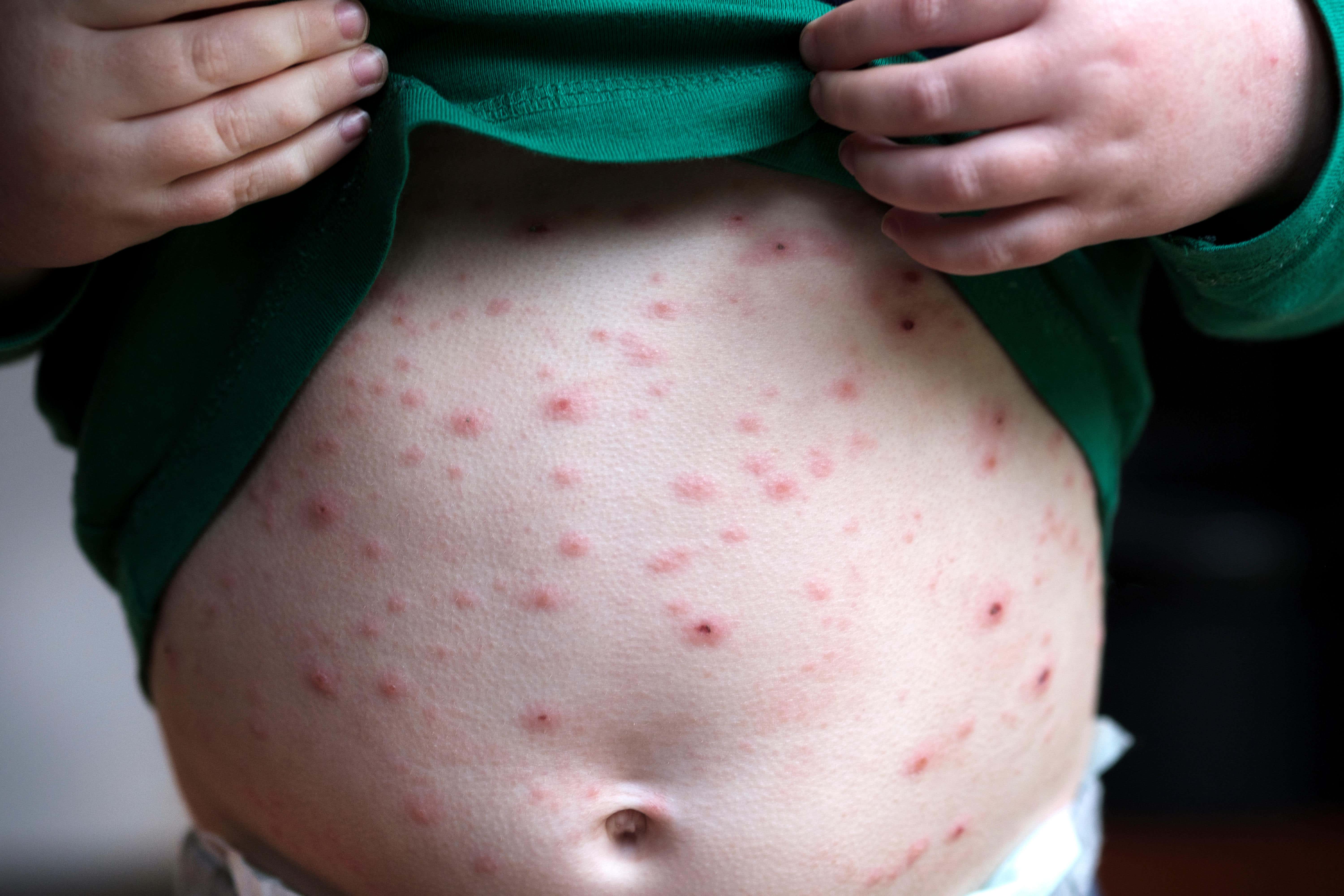Introducing routine chickenpox jabs for children ‘could end risky pox parties’
Research suggests about three-quarters of parents would support a chickenpox jab being added to the childhood vaccination schedule.

Adding a chickenpox jab to the NHS childhood vaccination schedule could end risky pox parties, experts have said.
New research suggests that about three-quarters of parents would support routine immunisation against chickenpox during childhood.
The findings, published in the journal Vaccine, is based on survey results from about 600 parents assessing their attitudes to the jab.
The researchers said making chickenpox jab routinely available would mean parents will no longer need to expose their children to “chicken pox parties”.
Study author Dr Sue Sherman, reader in psychology at Keele University, said: “Although chickenpox is usually a mild illness, for some individuals it can be a severe illness, requiring hospitalisation and rarely in children, resulting in death.
“Our research suggests that the majority of parents would be willing to have the vaccine for their children.”
Chickenpox is caused by a virus known as varicella zoster.
In most cases symptoms are mild, with spots, high temperature and headaches.
The introduction of a vaccine would mean that parents no longer felt they needed to expose their children to chicken pox in this way
But occasionally there are severe side effects, such as bacterial infections, pneumonia and swelling in the brain.
Children who have recently had chickenpox are also more likely to develop serious forms of Group A Strep infection.
Several countries such as the US, Japan, Australia, Canada include chickenpox vaccine in their routine childhood vaccination programmes.
In the UK it is not part of NHS childhood immunisations but is available to those who demonstrate a clinical need – such as healthy people not immune to chickenpox who are in close contact with someone with a weakened immune system.
The Joint Committee on Vaccination and Immunisation (JCVI) is considering whether to recommend adding chickenpox vaccination to the schedule.
The research, funded by a British Psychological Society undergraduate bursary, showed that of those questioned, 74% said they were likely to accept the jab for their child if it was introduced, while only 18.3% said they were unlikely to, and 7.7% said they were unsure.
Protection from complications of chickenpox, trust in the vaccine and healthcare professionals, and wanting their child to avoid their personal experience of chickenpox were some of the reasons cited by parents for accepting the chickenpox vaccine.
Although chickenpox is usually a mild illness, for some individuals it can be a severe illness, requiring hospitalisation and sometimes resulting in death
Those who were unlikely to accept it said their reasons included chickenpox not being a serious illness, having concerns about side effects, and their belief that it is preferable to catch chickenpox as a child rather than as an adult.
Study co-author Helen Bedford, professor of children’s health at University College London (UCL), said: “Adding chickenpox vaccine to the schedule will ensure that children are protected against the infection.
“However, some parents may have concerns about their child having an additional vaccine.
“They can be reassured that chickenpox vaccine has been used for many years around the world and has a good safety record.”
She also said that deliberately exposing children to the virus is not advisable and has the risk of severe disease.
Prof Bedford said: “As chickenpox is more serious for adults, parents sometimes deliberately expose their children to chicken pox to make sure they catch the infection while they are young.
“This is sometimes done at ‘chickenpox parties’.
“However, this is not to be recommended because some children exposed in this way may have a severe attack of the infection.
“The introduction of a vaccine would mean that parents no longer felt they needed to expose their children to chicken pox in this way.”
Adam Finn, a professor of paediatrics at the University of Bristol and a member of the JCVI, who was not involved in the study, said the results indicate “an encouragingly high level of interest and engagement with the idea of varicella vaccine”.
He added that it was “important to caveat with all the usual bias problems that beset survey studies” where “people who respond to surveys are not an average or typical sample”.
Prof Finn said: “To be clear that, even if they were, the opinions they express in a survey are not likely to accurately predict how they would behave in the context of being offered the vaccine in a national programme.”
Prof Finn said that as a member of the JCVI’s varicella sub-committee, he is not in a position to comment on a routine chickenpox vaccine as decisions have not yet been finalised and announced.
Bookmark popover
Removed from bookmarks